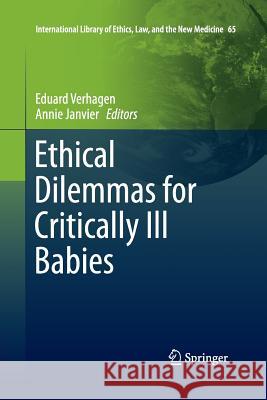Ethical Dilemmas for Critically Ill Babies » książka
topmenu
Ethical Dilemmas for Critically Ill Babies
ISBN-13: 9789402408232 / Angielski / Miękka / 2016 / 96 str.
Kategorie BISAC:
Wydawca:
Springer
Seria wydawnicza:
Język:
Angielski
ISBN-13:
9789402408232
Rok wydania:
2016
Wydanie:
Softcover Repri
Ilość stron:
96
Waga:
0.16 kg
Wymiary:
23.39 x 15.6 x 0.56
Oprawa:
Miękka
Wolumenów:
01
Dodatkowe informacje:
Wydanie ilustrowane











